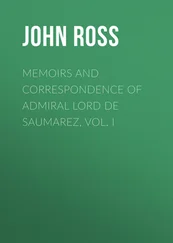Charles Beresford - The Memoirs of Admiral Lord Beresford
Здесь есть возможность читать онлайн «Charles Beresford - The Memoirs of Admiral Lord Beresford» — ознакомительный отрывок электронной книги совершенно бесплатно, а после прочтения отрывка купить полную версию. В некоторых случаях можно слушать аудио, скачать через торрент в формате fb2 и присутствует краткое содержание. Жанр: foreign_antique, foreign_prose, на английском языке. Описание произведения, (предисловие) а так же отзывы посетителей доступны на портале библиотеки ЛибКат.
- Название:The Memoirs of Admiral Lord Beresford
- Автор:
- Жанр:
- Год:неизвестен
- ISBN:нет данных
- Рейтинг книги:5 / 5. Голосов: 1
-
Избранное:Добавить в избранное
- Отзывы:
-
Ваша оценка:
- 100
- 1
- 2
- 3
- 4
- 5
The Memoirs of Admiral Lord Beresford: краткое содержание, описание и аннотация
Предлагаем к чтению аннотацию, описание, краткое содержание или предисловие (зависит от того, что написал сам автор книги «The Memoirs of Admiral Lord Beresford»). Если вы не нашли необходимую информацию о книге — напишите в комментариях, мы постараемся отыскать её.
The Memoirs of Admiral Lord Beresford — читать онлайн ознакомительный отрывок
Ниже представлен текст книги, разбитый по страницам. Система сохранения места последней прочитанной страницы, позволяет с удобством читать онлайн бесплатно книгу «The Memoirs of Admiral Lord Beresford», без необходимости каждый раз заново искать на чём Вы остановились. Поставьте закладку, и сможете в любой момент перейти на страницу, на которой закончили чтение.
Интервал:
Закладка:
For long the Tycoon, or his advisers, maintained his position with singular address. But no man born of woman could have solved its complications. For the great Daimios, the feudal nobility, held allegiance primarily to the Mikado. The Tycoon could and did detach some of the clans to his side; but the great body of the western clans defied him. The influence of the Tycoon began swiftly to decline. At the same time the Imperial party began to perceive that the expulsion of foreigners had become impossible. The immediate result was the revolt of some of their adherents. Inspired as it was by hatred of the foreigner, it was directed equally against Mikado and Tycoon, and accompanied by expressions of loyalty to both parties.
In 1864 the troops of the Choshiu clan attempted to capture Kioto and to obtain possession of the person of the Mikado. They were defeated after heavy fighting. In June of the previous year, the Choshiu men had fired upon the American ship Pembroke while she was passing through the Inland Sea, and also upon the Dutch corvette Medusa . The French commander-in-chief of the station, Admiral Jaurès proceeded to Shimoseki and destroyed the batteries. In August a British naval force under the command of Vice-Admiral Kuper proceeded to Kagoshima in order to enforce the payment of the indemnity due for the murder of Mr. Richardson, bombarded the town and destroyed the batteries. It was these two actions which for the first time really convinced the ruling classes in Japan that it was hopeless any longer to endeavour to prevent the intrusion of foreign influence.
In 1866 the Tycoon Iyemochi died. In the same year a new and enlarged Convention was concluded with Great Britain, France, America and Holland. In the following year Keiki, very unwillingly, became Tycoon, an office which by this time had become exceedingly insecure. In the same year the Mikado, Komei, died and was succeeded by his son Mutsuhito, a minor. In the following year the Mikado assumed the whole administrative power hitherto vested in the Tycoon, and a new system of Government was promulgated. Followed, civil war and the defeat of the Tycoon, who retired into seclusion. In the meantime the Mikado had invited the Representatives of Foreign Powers to visit him at Kioto.
"That the Mikado of Japan, who claims to be descended from the sun-goddess, and in whose person a peculiar odour of sanctity was considered to exist, should voluntarily invite to his palace at Kioto the Envoys of nations who had hitherto been looked upon as outer barbarians, and intercourse with whom was a profane thing, was indeed a great step in advance. No foreigner had ever yet crossed the Imperial threshold, or looked upon the face of the sacred Emperor of Japan. It was a proof that a new order of things was inaugurated, and gave good hopes for the future" (Adams, History of Japan . Lond., 1875).
But although the Imperial Government perceived the wisdom of accepting the inevitable, the hatred of the foreigner, bred in the blood of the military caste, could neither be dissembled nor controlled; and the attack made upon the British Envoy, Sir Harry Parkes, while actually on his way to the Imperial Palace on 23rd March, 1868, illustrates the condition of affairs. On the road to Kioto and in the sacred city itself, the Europeans had been regarded by the people with a polite and respectful curiosity, nor was there any sign of hostility.
Sir Harry Parkes left the temple of Chi-on-in, where he lodged, to proceed to the audience, with a mounted escort of twelve ex-Metropolitan mounted police, under the command of Inspector Peacock, with whom rode a Japanese officer, Nakai Kozo. Behind these massive veterans rode Sir Harry himself, accompanied by Goto Shojiro, of the Japanese Foreign Department, and followed by Mr. Mitford, Mr. Satow, Dr. Willis, and other members of the Legation. Then came a guard of forty men of H.M.'s 9th Regiment under the command of Lieutenant Bradshaw and Lieutenant Bruce. A native guard preceded the train, and another guard followed it. Just as the policemen were turning the corner of a narrow street, Sir Harry observed signs of confusion, and the next moment a Japanese, his great sword flashing and hewing, dashed round the corner, closely pursued by two policemen. Sir Harry cried out to the soldiers behind him to stop the Samurai. Turning his head, he saw his companion, Goto Shojiro, on foot, sword in hand rushing forward to attack a second Samurai, who was already fighting hand to hand with Nakai Kozo, the Japanese officer who had been riding alongside Inspector Peacock at the head of the policemen. Behind Sir Harry, shots rang out as the soldiers fired at the first assassin. Sir Harry Parkes was suddenly aware of the wild figure of a Japanese warrior, advancing towards him through the press. His face was a mask of blood; in one hand shone a long sword, dripping red from hilt to point; in the other, the victor lifted the bloody head, shorn clean from the shoulders, of his countryman. It was Nakai Kozo. Nakai gave the following ingenuous account of his deed of arms to Mr. Adams, secretary of the Legation, who quotes it in his History , as follows: —
"I saw a man running down the line cutting at one man after another. I jumped off my horse, drew my sword, and rushed after him; he turned and we engaged; he cut me on the head. Then Goto came up and dealt him a blow which felled him to the ground. Unfortunately Goto's sword-hilt, which was of lacquer, slipped from his hands, and I had to cope with the fellow alone. I could only see out of one eye, the other being covered with blood, but I kept chopping at him, and after about ten blows I managed to cut his head off. I then took the head and showed it to Sir H. Parkes."
The soldiers bayoneted the first Samurai, who was still alive when he was finally secured by Mr. Mitford. He was afterwards beheaded by the Imperial Government. But those two desperate enemies of the foreigner wounded thirteen men and five horses ere they were cut down. One of the wounded was a soldier, another a native groom; the remaining nine, of whom two were so seriously hurt that they were invalided home, were ex-Metropolitan policeman to whom the methods of the Samurai must have been startling. These trained fighters wield their two-handed swords, heavy, perfectly balanced, razor-sharp weapons, with an appalling swiftness and dexterity. At a single blow they can cleave a man to the chin, or cut off his head, or lop off a limb.
In May, 1868 Sir Harry Parkes presented his credentials, which had hitherto been addressed to the Tycoon, to the Emperor. On the 23rd was celebrated the Queen's birthday, when many Japanese of high rank, some of whom had never before made acquaintance with a foreigner, were entertained by Vice-Admiral Sir Henry Keppel, commander-in-chief of the China Station, on board H.M.S. Rodney . It was not until November that the civil war was ended by the submission of the rebels. The Emperor then took up his residence for a time in Yedo – now called Tokio – which had been the capital of the Tycoon, and which was henceforth to be the eastern metropolis of the Emperor, as Kioto was the western capital. In the following year, after another insurrection had been suppressed, the great Daimios made their memorable sacrifice, offering their lands and servants to the Emperor; thereby deliberately exchanging their almost independent state for a condition of subservience to the central Government.
Such, in brief, was the beginning of the New Japan; and it was at this stage in its development that, for the first time in history, a foreign prince, in the person of H.R.H. the Duke of Edinburgh, visited the Mikado.
CHAPTER XI
THE CRUISE OF H.M.S. GALATEA ( Continued )
The Galatea arrived at Yokohama on the 29th August 1869. The Duke with his suite, including myself, went up to Tokio (the old Yedo) and took up his quarters at Hama-go-ten, which had been the summer residence of the Tycoon. The estate marched with a piece of water opening into the bay; here were many summer-houses; and a commodious building equipped for the Duke by the orders of the Mikado. The name was changed to Yen-Rio-Kan, signifying a place set apart for distinguished foreigners.
Читать дальшеИнтервал:
Закладка:
Похожие книги на «The Memoirs of Admiral Lord Beresford»
Представляем Вашему вниманию похожие книги на «The Memoirs of Admiral Lord Beresford» списком для выбора. Мы отобрали схожую по названию и смыслу литературу в надежде предоставить читателям больше вариантов отыскать новые, интересные, ещё непрочитанные произведения.
Обсуждение, отзывы о книге «The Memoirs of Admiral Lord Beresford» и просто собственные мнения читателей. Оставьте ваши комментарии, напишите, что Вы думаете о произведении, его смысле или главных героях. Укажите что конкретно понравилось, а что нет, и почему Вы так считаете.












